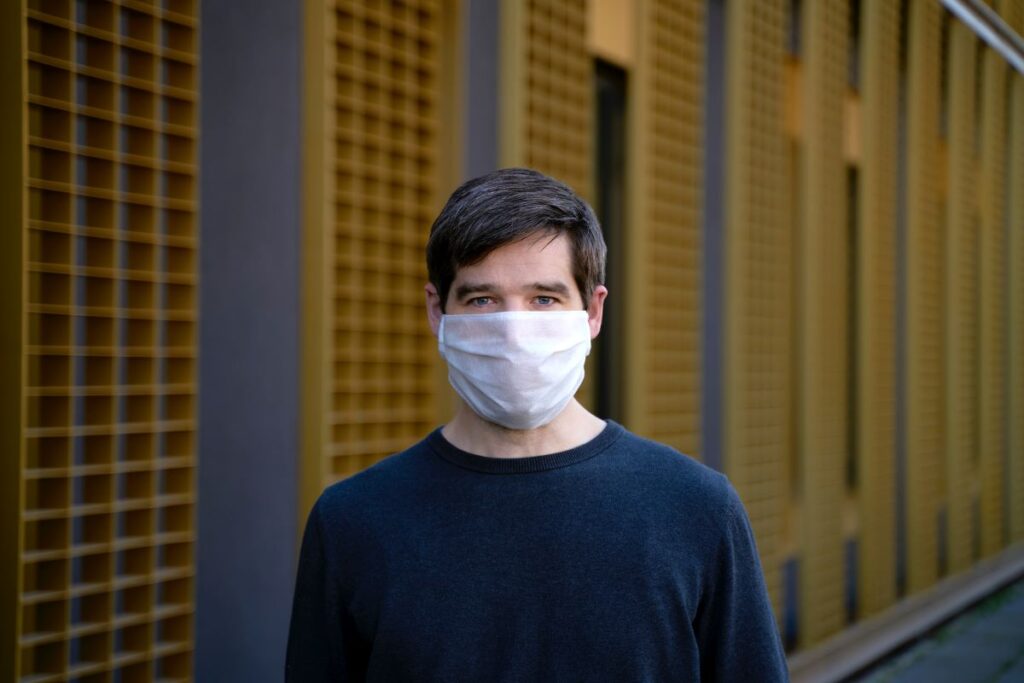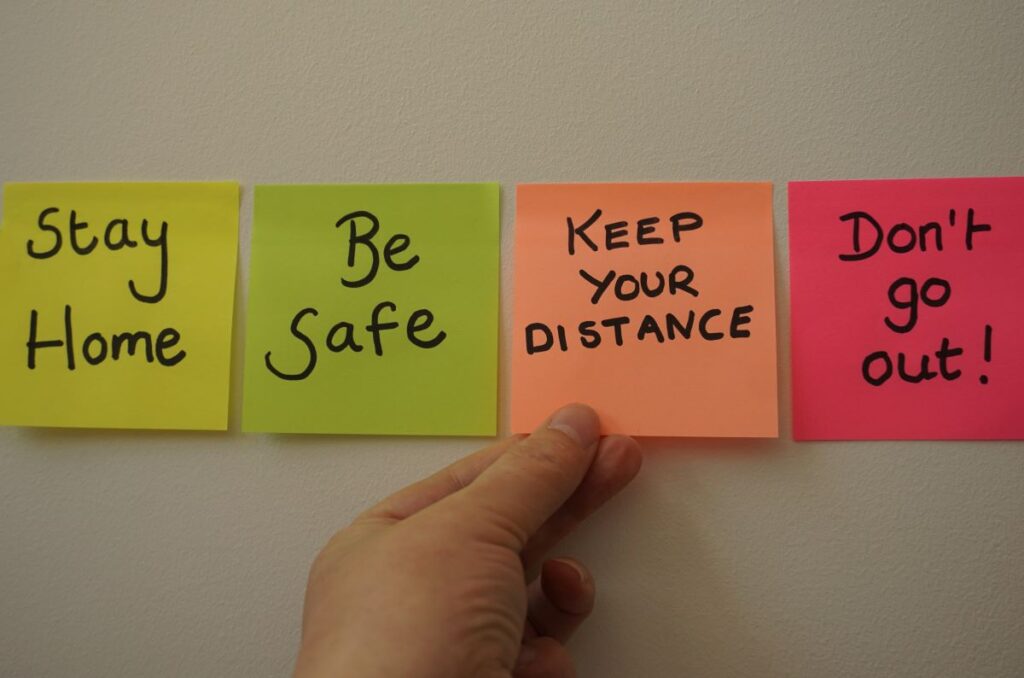
The last few decades of research has increasingly revealed the long lasting and far reaching negative effects associated with adverse childhood experiences (ACEs). To name just two of many examples, the authors of the paper blogged here cite the association between ACEs and health-harming behaviours such as smoking and drug use (Hughes et al., 2017; Graf et al., 2021), as well as the greater risks of developing chronic health conditions such as cancer, cardiovascular disease and diabetes (Merrick et al., 2019; Amemiya et al., 2019; Deschenes et al., 2018).
Not only are individuals who have experienced adversity more likely to experience ill health, but there is also evidence to suggest that such adversity is associated with lower levels of trust, and therefore potentially use of public health services (Munoz et al., 2019). With the entry of coronavirus into our lives, the need to understand effective ways of distributing public health information has perhaps never been so salient.
Building on existing explorations into individual differences in adherence to lockdown restrictions and vaccine hesitancy (e.g. Freeman et al., 2020a; Freeman et al., 2020b, blogged about here), here the authors look specifically at the potential contribution of ACEs to differences in adherence to and support for lockdown restrictions, trust in NHS messaging, and willingness to be vaccinated (Bellis et al, 2022).
The authors hypothesised that higher ACE count would be significantly associated with:
- Lower trust in NHS COVID-19 information
- Lower support for government restrictions imposed to control COVID-19, and
- Lower levels of willingness to be vaccinated.

Adverse childhood experiences are known to lead to lower levels of trust and use of public health services. Could they also have an impact on adherence to and support for lockdown restrictions?
Methods
The authors contacted 6,763 landline and mobile numbers in Wales using a sample stratified by health board area, deprivation quintile, and age. 2,285 adult residents Wales consented to take part between December 2020 and March 2021. This was mostly during a period of strict lockdown in Wales.
The study measured the participants’ experience of 9 ACEs (physical abuse, verbal abuse, sexual abuse, parental separation, exposure to domestic violence, household member with alcohol use, drug abuse, or who was incarcerated) using an adapted version of the Centre for Disease Control and Prevention short ACE tool (Centers for Disease Control and Prevention, 2021).
They also asked participants about the following:
- Their trust in NHS COVID-19 information
- Whether they felt unfairly controlled by lockdown restrictions
- Their views on mandatory face coverings and social distancing
- Their adherence to lockdown rules
- Their desire to be vaccinated against COVID-19.
Associations were tested first through chai square testing, then by logistic regressions controlling for demographic data, including having had COVID-19.
Results
Just over half (51.86%) of participants reported experiencing no ACEs (adverse childhood experiences), with 21.40% reporting 1 ACE, 16.46% reporting 2-3 ACEs, and 10.28% reporting four or more ACEs.
Higher ACE counts were independently associated with all outcome variables.
- Trust in NHS information
- Higher ACE count was associated with lower trust in NHS COVID-19 information after controlling for all demographic variables
- Restrictions
- Only a small proportion (less than 10%) of the total sample reported feeling unfairly restricted by the government, but this proportion increased significantly with ACE count
- Face coverings
- Participants with four or more ACEs were four times more likely to support the removal of face covering mandates than those with no ACEs
- Social distancing
- Participants with four or more ACEs were more than three times as likely to support the removal of social distancing than those with no ACEs
- Vaccine hesitancy
- Less than 8% of the total sample responded ‘no’ or ‘unsure’ to the question about wanting to receive a vaccine. However, this proportion again increased four-fold for those reporting four or more ACEs
- Rule breaking
- Around one quarter of participants reported breaking the restrictions at least occasionally. This proportion doubled in those reporting four or more ACEs compared to those reporting none.

Participants with four or more adverse childhood experiences (ACEs) were four times more likely to support the removal of face covering mandates than those with no ACEs.
Conclusions
The overarching conclusion from this study is that the experience of multiple adverse events in childhood is correlated with lower trust in, and compliance to COVID-19 public health messaging among adults.

Experiencing multiple adverse events in childhood is correlated with lower trust in, and compliance to COVID-19 public health messaging.
Strengths and limitations
The study benefits from a relatively large sample, well stratified for key variables. Appropriate confounds were considered, including age, sex, ethnicity, deprivation, COVID-19 infection status, and physical health status.
The main limitation of the study is of course the correlational nature of the data. While childhood adversity was correlated with certain views and behaviours regarding restrictions and vaccines, a causal relationship cannot be concluded. This is often the case with research into childhood experiences given the difficulty of running longitudinal studies and the large number of potential confounding variables that need to be controlled.
Generalisability is also an issue. The study was only run in Wales, which had different rules as compared to other parts of the UK and of course other countries. Only nine ACEs were measured, excluding other commonly measured ACEs such as childhood neglect. The sample was also not ethnically diverse, leading to the authors categorising individuals as white or non-white, and within this only a total sample of 31 Non-white participants was recruited (from a total of 2,285). Conclusions regarding ethnicity are therefore not really possible from this study despite evidence that the prevalence of ACEs and opinions on vaccination differ significantly across different ethnicities (Sacks & Murphey, 2018; Freeman et al., 2020b). The sample was also biased towards older age groups, with only 174 18–29 year-olds recruited compared to 511 over 70s.
Some reporting bias may also have resulted from the use of telephone interview to collect responses. Participants may have had concerns about speaking truthfully about breaking restrictions to an unknown individual on the phone, particularly given the high levels of mistrust and conspiracy thinking regarding the pandemic that has been reported (Freeman et al, 2020a). Reporting ACEs may also have been difficult for individuals residing with other individuals and without a private space to complete the interview from.

Just because childhood adversity was correlated with particular views regarding COVID-19 restrictions, we cannot conclude that this is a causal relationship.
Implications for practice
The main implication here is the importance of ensuring concerted efforts are made to rebuild trust in public health services through more targeted communication with communities with high levels of childhood adversity and deprivation. Without this, we risk excluding people from public health interventions, which not only perpetuates the cycle of negative health outcomes we already see in these individuals, but simultaneously makes it harder to control the spread of diseases such as coronavirus.
If another reason was needed, the results also add further evidence for the need to invest in safe and secure childhoods for all children. This is not a new implication, nor is it one that would be any less important had the study not found significant associations between ACEs and all the variables measured. However, from a policy making perspective it adds further weight and urgency to the issue.

Efforts must be made to rebuild trust in public health services through targeted communication with communities with high levels of childhood adversity and deprivation.
Statement of interests
The author declares no conflicts of interest.
Links
Primary paper
Bellis, M., Hughes, K., Ford, K., Madden, H., Glendinning, F., & Wood, S. (2022). Associations between adverse childhood experiences, attitudes towards COVID-19 restrictions and vaccine hesitancy: a cross-sectional study. BMJ open, 12(2), e053915.
Other references
Amemiya, A., Fujiwara, T., Shirai, K., Kondo, K., Oksanen, T., Pentti, J., & Vahtera, J. (2019). Association between adverse childhood experiences and adult diseases in older adults: a comparative cross-sectional study in Japan and Finland. BMJ open, 9(8), e024609.
Centers for Disease Control and Prevention. Behavioural risk factor surveillance system adverse childhood experience (ACE) module. [Accessed 6 April 2022].
Deschênes, S. S., Graham, E., Kivimäki, M., & Schmitz, N. (2018). Adverse childhood experiences and the risk of diabetes: examining the roles of depressive symptoms and cardiometabolic dysregulations in the Whitehall II cohort study. Diabetes Care, 41(10), 2120-2126.
Freeman, D., Waite, F., Rosebrock, L., Petit, A., Causier, C., East, A., … & Lambe, S. (2020a). Coronavirus conspiracy beliefs, mistrust, and compliance with government guidelines in England. Psychological medicine, 1-13.
Freeman, D., Loe, B. S., Chadwick, A., Vaccari, C., Waite, F., Rosebrock, L., … & Lambe, S. (2020b). COVID-19 vaccine hesitancy in the UK: the Oxford coronavirus explanations, attitudes, and narratives survey (Oceans) II. Psychological medicine, 1-15.
Graf, G. H. J., Chihuri, S., Blow, M., & Li, G. (2021). Adverse childhood experiences and justice system contact: a systematic review. Pediatrics, 147(1).
Hughes, K., Bellis, M. A., Hardcastle, K. A., Sethi, D., Butchart, A., Mikton, C., … & Dunne, M. P. (2017). The effect of multiple adverse childhood experiences on health: a systematic review and meta-analysis. The Lancet Public Health, 2(8), e356-e366.
Merrick, M. T., Ford, D. C., Ports, K. A., Guinn, A. S., Chen, J., Klevens, J., … & Mercy, J. A. (2019). Vital signs: Estimated proportion of adult health problems attributable to adverse childhood experiences and implications for prevention—25 States, 2015–2017. Morbidity and Mortality Weekly Report, 68(44), 999.
Munoz, R. T., Hanks, H., Brahm, N. C., Miller, C. R., McLeod, D., & Fox, M. D. (2019). Adverse childhood experiences and trust in the medical profession among young adults. Journal of Health Care for the Poor and Underserved, 30(1), 238-248.
Nabavi, N. COVID-19 vaccine hesitancy: who is hesitant and why? #OxfordMentalHealth. The Mental Elf, April 2021.
Sacks, V., & Murphey, D. (2018). The prevalence of adverse childhood experiences, nationally, by state, and by race or ethnicity.
Photo credits
- Photo by CDC on Unsplash
- Photo by Ronda Dorsey on Unsplash
- Photo by Denis Jung on Unsplash
- Photo by Sarah Kilian on Unsplash
- Photo by Possessed Photography on Unsplash
- Photo by Xavi Cabrera on Unsplash
